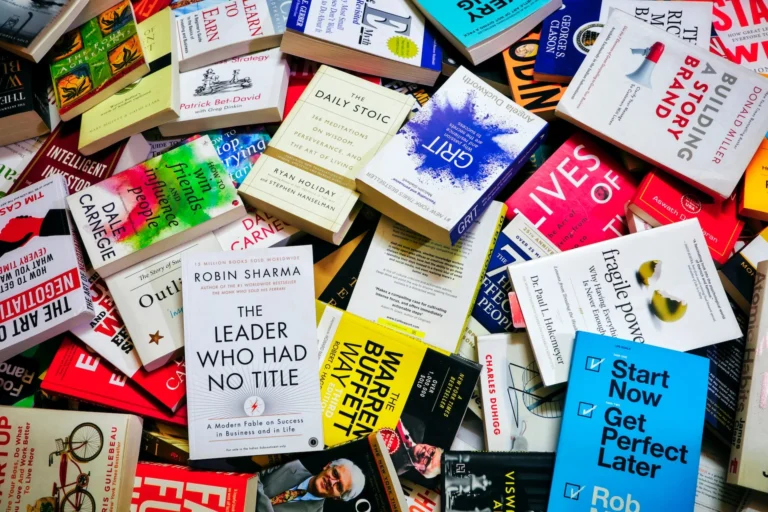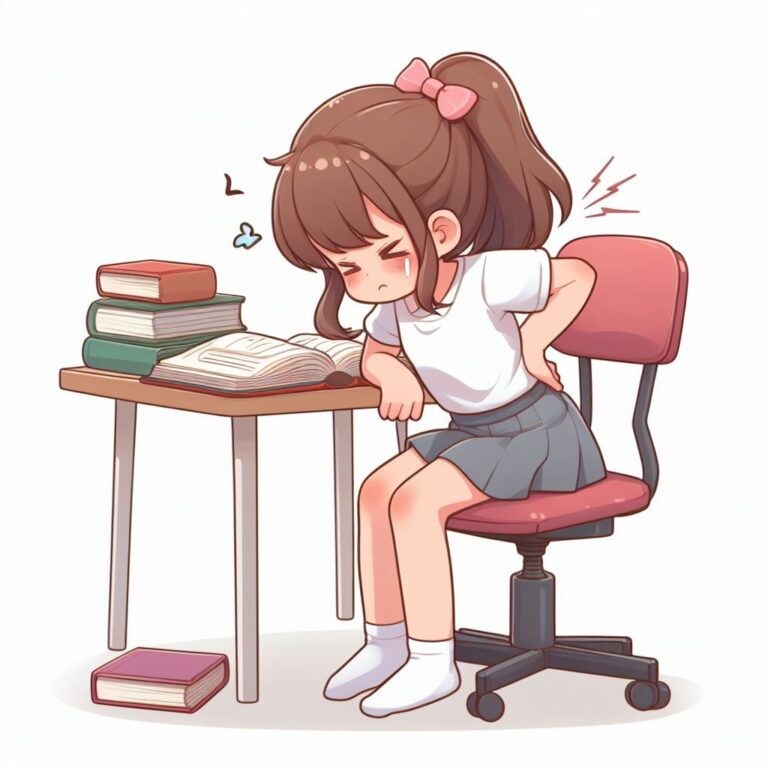Thinking about writing a book but feeling overwhelmed? You’re not alone.
Starting from scratch can be tough, especially if you haven’t written before.
Whether you have a small idea or something big in the pipeline, I’ll take you through the whole process!

This guide is like a friend, here to guide you through the complete process of writing step-by-step.
Key Takeaways
- Begin with short stories or writing prompts to build confidence.
- Pick a genre you love, like romance or mystery, to focus your writing.
- Plan your story step by step; it’s like making a map before a trip.
- Just write without worrying about perfection; let your creativity flow.
- Make friends with other writers; they can support and inspire you.
From finding inspiration to making your story come alive. By the end, you’ll know how to write and feel confident enough to share your story with others.
So, let’s keep things simple: no jargon, just easy actionable steps to start on your writing journey.
Choose a Topic or Genre
Okay, imagine you’re in a candy store, but instead of candies, you have different kinds of stories to pick from!
Choosing what you want to write about is the first big step. Think about what you really, really like – maybe it’s love stories, adventure, or fantasy.
These are called genres, and each one is like a special flavor of the story.

For example, if you enjoy stories about love and feelings, romance is the way to go. If you like solving puzzles and uncovering secrets, the mystery is your jam. If you dream about futuristic gadgets and outer space, science fiction is awesome.
There are many more genres, each offering a unique experience! There are three basic genres you can choose and start narrowing down. These are Fiction, Non-fiction, and Poetry.
Tip: Narrow down your genre into specific sub-genres to focus your writing. It targets a specific audience and increases your chances of getting noticed. So, stay specific and stand out!
I’ve mentioned a list of all the subgenres and also a little description of them. So, that your first step becomes easier and you can easily choose your subgenre.
Types of Genres
Fiction Genres
Fiction genres are different types or categories of stories that people write. They help us understand what a story is about. Here are some basic fiction genres:
Romance: These stories are all about love. They often have characters falling in love and facing challenges to be together.
Mystery: Mystery stories are like puzzles. There’s a problem to solve, like a crime, and the characters work to figure out what happened.
Thriller: Thrillers are very exciting! They’re full of suspense and danger, with characters facing thrilling adventures and risks.
Science Fiction: Science fiction stories imagine things from the future or outer space. They can have futuristic technology, aliens, or space travel.

Fantasy: Fantasy stories have magical or imaginary elements. They often include wizards, dragons, and magical lands.
Horror: Horror stories are meant to be scary. They include ghosts, monsters, and other frightening things that give you chills.
Adventure: Adventure stories are about exciting journeys and exploration. Characters go on quests and face challenges.
Historical Fiction: These stories are set in the past and often include real historical events or people. They help us learn about history in an interesting way.
Dystopian: Dystopian stories show a future where society is not good. They often explore themes like control, fear, and rebellion.
Non-fiction Genres
Non-fiction genres are types of books that present information about real people, events, or facts.
Unlike fiction, which is made up, non-fiction is all about real things. Here are some simple examples of non-fiction genres:
Biography: A book about someone’s life, written by another person.
Memoir: Similar to a biography, but it focuses on specific moments or experiences in someone’s life.
Self-Help: Books that give advice or guidance on how to improve your life, skills, or well-being.

Cookbook: A book with recipes and cooking instructions.
Travel: Books about different places and travel experiences.
History: Books that tell us about events and things that happened in the past.
Science: Books explaining different scientific concepts and discoveries.
Essay: Short pieces of writing that explore a specific topic or idea.
Poetry Genres
Poetry is a special way of writing that doesn’t follow the usual rules of sentences and paragraphs. Instead, it uses creative and expressive words to evoke emotions and tell stories.
Poems can be about anything: nature, feelings, or even everyday objects. Here are some simple examples of poetry genres:
Rhymed Poetry: These poems sound musical because the words at the end of the lines rhyme, making them fun to read.
Free Verse: This poetry doesn’t follow any rules. It’s like a painting with words, where you can express your thoughts freely.
Haiku: Haikus are short poems about nature. They have three lines and capture a moment, like a snapshot of nature.
Limerick: Limericks are funny poems with a specific rhyme. They tell short, amusing stories in a poetic way.
Acrostic: In these poems, the first letter of each line spells out a word. It’s like creating a secret code with words.
Children Genres
Children’s genres are different types of stories and books made just for kids. They include:
Picture Books: These have lots of colorful pictures and a simple story. Perfect for younger kids.

Early Readers: These books help kids learn to read with easy words and simple sentences.
Chapter Books: They have more words and chapters, suitable for kids who read on their own.
Middle Grade: These are longer books with exciting adventures, great for older kids.
Young Adult (YA): These books are like grown-up novels but with teenage characters, dealing with their challenges and experiences.
Tips for Choosing a Genre
If all of this still feels a bit confusing, start with something small, like a short story. It’s like trying a sample at the candy store before choosing your favorite.
Think about who you want to tell your story to. Is it for kids who love magical creatures, or for grown-ups who enjoy exciting adventures?
Knowing your audience helps you shape your story in a way they will enjoy.
Each genre offers a different kind of reading experience. Pick what interests you the most and makes you happiest and start writing!
Find Your Inspiration
Finding ideas for your story is not that difficult.
You just need to change your way of looking at things. By doing that, You can easily find ideas in simple places. Here’s how:
Look Inside: Your memories and dreams are great places to start. Think about your favorite moments or something you wish had happened.
Follow Your Interests: What do you love? Animals? Magic? Sports? Write about what excites you. Your passion makes your story lively.
Stay Curious: Ask questions. Wonder about the world around you. Why does the sky change colors? Questions lead to amazing discoveries.
Spend Time in Nature: Spend time outdoors. The rustle of leaves or a rainbow after rain can inspire beautiful stories.

Watch People: Observe people you see. How they smile, how they talk. Characters in your story can be inspired by real people.
News and Everyday Life: Even small news can spark big ideas. A lost kitten or a new café in town – everyday life is full of stories.
Dream: Sometimes, your dreams can create great ideas. Write them down when you wake up; they might turn into amazing stories.
Tip: Remember, inspiration can come from anywhere. Keep your eyes and ears open, and when you find that exciting idea, write it down!
Set a Clear Goal
Setting clear goals in your writing journey is like having a destination on a map. It gives you a purpose and a direction to go.
Just like planning a trip, you need to know where you’re heading. Clear goals do that for your writing.
They make your big writing dream into smaller, achievable tasks.
Imagine you’re climbing a ladder. Each step is a goal. Without these steps, you might feel like you’re standing still, not knowing where to go.
So, setting clear goals means deciding what you want to achieve in your writing, like writing a certain number of words every day.
They turn your big writing dream into simple, doable tasks, helping you take one step at a time toward finishing your book.

Setting clear goals keeps you focused, and motivated, and helps you finish your book step by step. Here’s how to do it:
Be Specific: Instead of saying, “I want to write a book,” say, “I will write 500 words every day.”
Be Realistic: Set goals that challenge you but are possible to achieve. Don’t overload yourself with too much work.
Be Measurable: Make sure you can measure your progress. Track how many words or pages you write each day.
Be Flexible: Sometimes, plans change, and that’s okay. Adjust your goals if needed but keep moving forward.
Make Time for Writing
Making time for writing is like making space for your favorite hobby. It’s important because it helps you focus, stay consistent, and make progress in your story.
Why it’s Important?
Focus: Writing time helps you concentrate on your story without distractions.
Consistency: Regular writing builds a habit, making it easier to continue your story.
Progress: Every minute adds up to your book. Setting aside time ensures you move forward.
By dedicating specific time daily to your writing, your story will grow, one step at a time. Here’s how you can do it:
Schedule: Plan your writing like appointments. Mark specific hours on your calendar.
No Distractions: Find a quiet place and turn off your phone to stay focused.

Start Small: Begin with short sessions, like 30 minutes, and increase gradually.
Be Realistic: Set achievable goals. Quality matters more than quantity.
Start with Short Stories or Writing Prompts
If you’re new to writing, beginning with short stories and writing prompts is a great idea.
Short stories are like small stories you can read in one go. They’re not very long, so you can finish them quickly.
Writing prompts are like creative ideas to help you start your own story. They can be sentences or even pictures that inspire you.
For example, a prompt could be “Write about a friendly alien visiting Earth.” It gives you a starting point for your story.
It’s like someone giving you a cool idea, and then you use your imagination to create a whole story around it.
Writing prompts are great to beat writer’s block and kick-start your creativity!

Starting with short stories and writing prompts can really help you as a beginner. Here’s why:
Not Too Long: Short stories are like tiny versions of books. They’re short and not overwhelming. You can finish them faster, which feels good and gives you confidence.
Easy Ideas: Writing prompts are like story ideas that someone gives you. They make it easier to know what to write about. You can find prompts online or in books, and they help you get started.
Practice Skills: Short stories help you practice important writing skills, like making characters interesting and creating a good story. It’s like practicing a sport to get better; the more you write, the better you become.
Try Different Types: With short stories, you can try writing different kinds of stories. Maybe one day you write about space, and the next day you write a mystery. It’s like testing different flavors of ice cream to find your favorite.
Feel Proud: Finishing a short story, no matter how small, makes you feel proud. It’s like finishing a puzzle. It shows you can do it, and that’s an amazing feeling.
Do Your Research
When you’re writing your book, you might need to find out more about certain topics. That’s where research comes in.
Research means looking up information and learning new things. Here’s how you can do it:
Plan Ahead: First, think about what you need to know. Make a plan. This helps you focus on what’s important.
Use Good Sources: Look for information in reliable places like books and trustworthy websites. Avoid using information that might not be true.
Take Notes: Write down what you find important. This helps you remember and use the information in your book.
Ask Experts: If you need to know something specific, ask people who are experts in that area. They can give you special and accurate information.

Check Facts: After gathering your information, make sure it’s true and up-to-date. You don’t want wrong information in your book.
Doing research helps your book become more interesting and trustworthy for your readers.
Understand the Publishing Industry
Publishing is essential because it helps your ideas and stories reach many people. When you publish your work, like stories or knowledge, more people can read and learn from what you’ve written.
It’s like sharing your favorite book with friends but on a much larger scale.
There are two main ways: Traditional and Self-Publishing.
Traditional Publishing: Big companies publish your book. They edit, print, and sell it in stores. It’s hard to get a deal, but if you do, they take care of most things.
Self-publishing: You do it yourself or hire help. You have more control, but you need to handle editing, design, and marketing.
Getting Noticed: Whether traditional or self-publishing, you need to make people aware of your book. Social media, book events, and talking to people can help.
Editing and Design: Your book needs to look good. Editing makes it better, and a good cover design attracts readers.
Marketing: You need to tell people about your book. This can be online, in person, or through other creative ways. The more people know, the more likely they’ll read it.
Costs and Profits: Traditional publishing doesn’t cost you money, but you earn less from each book sold. Self-publishing costs money upfront, but you earn more from each sale.
Understanding these basics helps you decide how to publish your book and share your stories with others.
Create Your Book Outline
Creating a book outline is like making a map before a big trip. It helps you plan your story step by step. Imagine it as the skeleton of your book.
Having an outline is like having a recipe before cooking; it tells you what ingredients (or story elements) you need and how to put them together. It brings order to your ideas, so you don’t feel lost while writing.

With an outline, you know where your story starts, where it’s going, and how it ends. It’s like having a guide to lead you through the writing journey, making sure you don’t miss important details or get stuck.
So, having a book outline saves you time, keeps your story organized, and helps your creativity flow smoothly.
Creating a book outline might sound like a difficult task but it can be easily done by following these tips:
1. Introduction
Start your story by introducing the main characters and the place where the story happens. Talk about the big problem or challenge they need to solve.
2. Characters
Think about your main characters. What are they like? What do they want? Describe them well, so readers can understand and care about them. Also, think about other characters who help or challenge your main characters.
3. Scene Making
Create a world in your story. Describe how it looks, feels, and sounds. Use details to make readers imagine being there.
4. Plot
Plan what happens in your story. Think about the main events and problems, and how they get solved. Make sure the events make sense in order.
5. Chapters
Divide your story into chapters. Each chapter can focus on one important thing that happens. Summarize each chapter briefly to understand its role in the story.
6. Dialogue
Write conversations between your characters. Make sure each character talks in a way that shows who they are. Every character should have a unique way of speaking.
7. Conclusion
Think about how the main problem gets solved. Tie up any loose ends, so readers aren’t left with questions.
8. Problems
Decide what big problems your characters face. Think about how these problems are solved and what your characters learn from them.
9. Themes
Consider what big ideas your story explores, like love, friendship, or bravery. Make sure your characters and the events in your story reflect these ideas.
10. Refine and Revise
Read through your outline carefully. Check if everything makes sense and if the story flows well. Fix parts that seem confusing or don’t fit.
11. Feedback
Share your outline with others and listen to what they say. Make changes based on their suggestions to make your story better.
12. Starting Writing
Begin by understanding your main ideas and characters deeply. Break your story into chapters, thinking about what happens in each one.
13. Timeline
If your story happens over time, create a timeline. This helps keep events in order, making your story easy to follow.
14. Bullet Points
Inside each chapter, use bullet points to list important events. This keeps your thoughts organized and your story clear.
Write Your First Draft
Now that you have your outline ready, it’s time to write your story’s first draft. Here’s how to do it:
1. Set a Writing Schedule: Choose specific times each day or week when you can sit down to write. Having a regular schedule helps you stay focused.
2. Don’t Edit, Just Write: When you start writing, don’t worry about making everything perfect. Just get your ideas down on paper without stopping to fix every little mistake.
3. Follow Your Outline: Your outline is like a map. It guides you through your story. Stick to it, but if your creativity leads you in a new direction, follow that too.
4. Embrace Mistakes: It’s okay to make mistakes in your first draft. Everyone does! Don’t let them stop you. Keep going; you can fix things later.
5. Stay Organized: Keep track of your characters, places, and what happens in each chapter. This helps you avoid mistakes and keep your story consistent.
6. Silence Your Inner Critic: Don’t worry about what others might think right now. Your first draft is for you. Just enjoy the process of writing.
7. Take Breaks: Writing can be tiring. Take short breaks to rest your mind. It’s okay to step away and come back later with fresh ideas.
8. Celebrate Milestones: Whenever you finish a chapter or reach a word goal, take a moment to be proud of yourself. Every step forward is an achievement.

9. Keep Moving Forward: Even if you feel stuck, keep writing. Sometimes the best ideas come when you least expect them. Don’t give up.
10. Stay Inspired: Look for inspiration in the world around you. Read books, go for walks, talk to people. Ideas can come from anywhere, so stay open to the world.
Writing your first draft is like telling yourself the story. Have fun with it, and remember, it doesn’t have to be perfect. You can always make it better in the next drafts.
Make a Community
Building a writing community is important for your growth as a writer. Building a writing community is like making friends who love writing too!
Here are some easy ways to do it:
Join Online Groups: Go online and find groups where writers talk. Websites like Reddit and Goodreads have these groups.
Go to Writing Events: Find events near you where writers meet. You can learn new things and make new friends.
Take Writing Classes: Join classes where you can learn to write better. You can find these classes online or in your city.
Start Your Group: If there’s no group, start one! Invite people who like writing to meet and share stories.
Use Social Media: Facebook, Instagram, and Twitter are great for meeting writers. You can talk about your writing journey and make friends.
Read Books Together: Join book clubs where people read and talk about books. You can find these clubs in your area.
Work on Projects: Team up with other writers for projects. It could be a story or a book. Working together is fun!
Be Nice and Helpful: Support other writers. Congratulate them on their achievements and help them if they need it. Be kind!
Share Useful Stuff: If you find helpful writing tools or articles, share them with your friends. Sharing is caring!
Say Yes to Feedback: If someone gives you advice on your writing, be open to it. It can make you a better writer.

Some Tips on Using Social Media:
- Find Writing Groups: On platforms like Facebook and Instagram, there are groups of writers. Join them to connect with writers from all over the world.
- Share Your Story: Talk about your writing journey and the problems you face. Others in the community can help you with advice.
- Talk to Others: Comment on what other writers post. Participate in writing challenges. Being active helps you make friends.
- Be Nice: Always be respectful to others, even if you disagree. A good community is made when everyone is kind and supportive.
- Support Others: Help other writers by promoting their work. When you support them, they are likely to support you back.
Remember, your writing community is like your team. They help you, cheer for you, and understand your struggles. So, make friends and enjoy your writing journey!
Overcoming Fear and Self-Doubt:
Feeling scared or unsure about writing is normal. Many successful writers felt the same way at the start. First, accept these feelings. It’s okay to be scared, and you’re not alone.
To fight self-doubt, be kind to yourself. Use positive words. Believe in your writing skills. Start with small tasks like short stories. Every little step forward is a win. Don’t aim for perfection in your first draft. Writing is about getting better over time.
Celebrate your progress, no matter how small. Completing a chapter or getting good feedback is a success. Learn from mistakes instead of feeling bad about them. Connect with other writers who understand your journey.

Relaxation activities like yoga or walking can calm your mind. Set realistic goals. Remember, your unique voice makes your writing special. Believe in yourself and keep going. With determination and support, you can beat your fears and become a confident writer.
Hire a Writing Coach
If you feel stuck or too stressed, it’s okay to ask for help. Even experienced writers need guidance sometimes. Don’t be afraid to reach out to professionals.
Working with a writing coach can be super helpful! Here’s why
Personalized Help: A writing coach gives you one-on-one attention. They focus on your specific writing challenges and help you improve where you need it most.
Encouragement: Writing can be tough, but a coach is like a cheerleader. They motivate you, boost your confidence, and help you believe in your skills.
Guidance: Coaches know a lot about writing. They teach you techniques, tricks, and the right way to tell your story. It’s like having a writing expert by your side.
Accountability: Sometimes, it’s hard to stay on track. A coach helps you set goals and makes sure you stick to them. They keep you accountable, so you keep making progress.
Feedback: Coaches give you feedback on your work. They tell you what’s great and what needs improvement. This feedback is like a map, guiding you to become a better writer.
Support System: Writing can be lonely, but with a coach, you have a friend who understands your struggles. They celebrate your successes and help you through tough times.

In short, a writing coach is like a friendly guide who helps you become the best writer you can be!
Take Breaks
When you’re writing, it’s important to give yourself breaks to avoid feeling exhausted. Here are some simple ways to manage your energy and prevent burnout:
Regular Breaks: Take short breaks during your writing time. Stand up, stretch, or take a walk to clear your mind.
Realistic Goals: Don’t overwhelm yourself with too much work. Set achievable writing goals each day to reduce stress.
Self-Care: Make time for activities you enjoy, like hobbies or spending time with loved ones. These activities refresh your mind.
Don’t Aim for Perfection: Your first draft doesn’t have to be perfect. Focus on getting your ideas down, and don’t worry too much about making it flawless.
Stay Organized: Keep your writing space neat. A tidy environment can help you concentrate and be more creative.

Celebrate Progress: Acknowledge your achievements, even the small ones. Celebrate finishing a chapter or reaching a word count goal.
Listen to Your Body: Pay attention to how you feel. If you’re tired or uninspired, take a break and come back to writing when you’re feeling better.
Talk to Others: Share your feelings with friends, family, or fellow writers. Sometimes, talking about what’s on your mind can make you feel better.
Revise Your Work
Revision and editing are essential steps in making your writing the best it can be. Here are some simple tips to help you:
Take a Break: Step away from your writing. When you return, you’ll see it with fresh eyes and notice mistakes.
Read Out Loud: Hearing your words helps you find confusing parts or errors you might miss when reading silently.
Be Clear: Make sure your writing is easy to understand. If something is confusing, rewrite it until it makes sense.
Cut Unnecessary Parts: Remove sentences or paragraphs that don’t add to your main message. Keep your writing focused.
Check Spelling and Grammar: Look for common mistakes like misspelled words and bad grammar. Use writing tools to help.
Use Punctuation Right: Correct use of commas, periods, and quotation marks makes your writing clear. Be consistent in their use.
Keep a Consistent Style: Make sure your writing looks the same throughout. Consistency makes your work look professional.
Get Feedback: Ask others to read your work and share their thoughts. They might find things you missed.
Polish Dialogue: If your writing has conversations, make sure they sound natural. Each character should have their own way of speaking.
Final Check: Before sharing your work, do a final proofread. Pay attention to every detail to present the best version of your writing.

Summary
Writing a book is an exciting journey that starts with a clear idea. Plan your story, create engaging characters, and draft your book one chapter at a time.
Don’t worry if it’s not perfect at first; revising and getting feedback can help improve it. Joining a writing community for support and advice is great. Remember, every writer’s journey is unique; believe in your story, keep writing, and enjoy the process!






